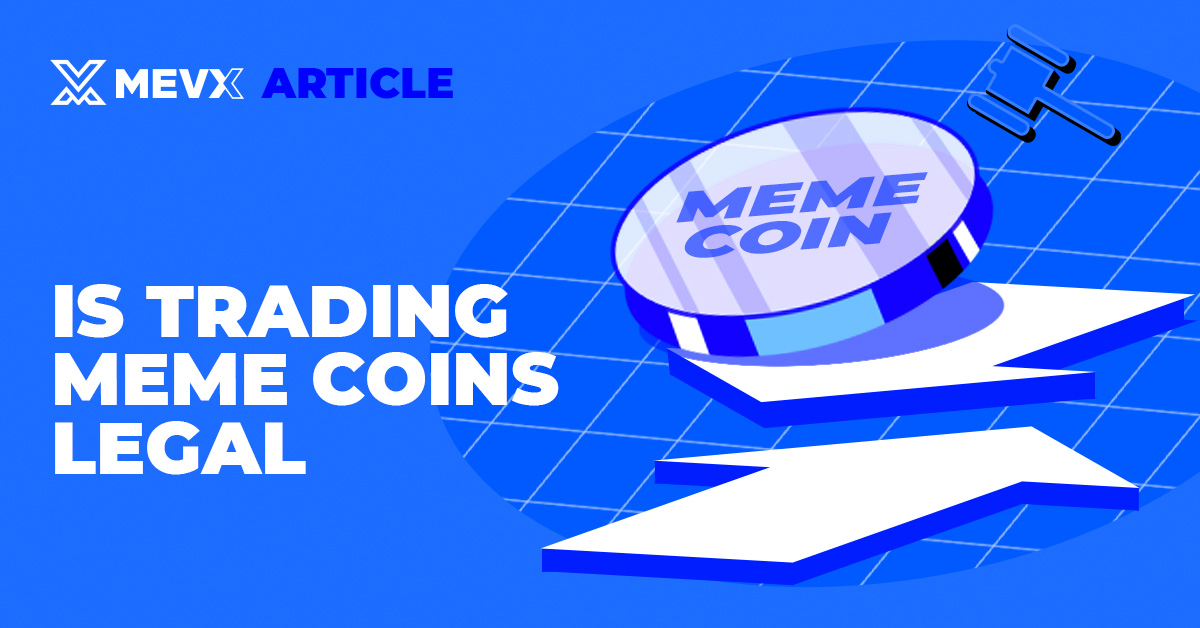Is trading meme coins legal? The short answer is that there is no universal yes or no. While a blanket ban doesn’t exist anywhere in the world, there’s also no clear, consistent legal framework for meme coins. The legal status is highly ambiguous, varies significantly from country to country, and is in a constant state of flux. This legal uncertainty is one of the biggest challenges for traders and projects in this space.

Regulatory Classification: Securities or Something Else?
One of the central questions for regulators is how to classify meme coins. In the United States, the Securities and Exchange Commission (SEC) uses the Howey Test to determine if an asset is a security. A key part of this test is whether an investment is made with the expectation of profits based on the efforts of others.
Meme coins often don’t fit this definition neatly. They are typically created with no stated roadmap, no clear team, and their value is driven purely by community hype and speculation, not the efforts of a promoter or third party. However, this doesn’t exempt them from all legal scrutiny. Regulatory bodies may still investigate them under anti-fraud and market manipulation laws, particularly if there are allegations of rug pulls or coordinated pump and dump schemes
Key Legal and Regulatory Risks
Even if not classified as a security, meme coin trading is subject to a range of legal and regulatory risks.
- Anti-Money Laundering (AML) & Counter-Terrorist Financing (CFT): Many countries are tightening their grip on the crypto market by extending AML/CFT regulations to digital assets. Crypto exchanges, even those handling meme coins, are required to implement Know Your Customer (KYC) procedures and monitor transactions for suspicious activity. Failure to comply can lead to hefty fines and legal action.
- Fraud and Lawsuits: Meme coin projects that engage in fraudulent activities like a rug pull—where developers abandon a project and run off with investor funds—can face criminal charges or civil lawsuits. These cases are becoming more common as regulators and law enforcement agencies improve their understanding of crypto scams.
- Tax Obligations: Globally, the most consistent legal obligation for meme coin traders is tax. Most jurisdictions, including the U.S., European Union members, and India, treat meme coins as a form of property or a digital asset. This means any profits from trading are considered a taxable event, subject to capital gains tax or income tax. Failure to declare these gains can lead to severe penalties.
Global Approaches to Meme Coins
Different regions are adopting varied approaches to regulating meme coins.
- United States: The U.S. remains the most prominent battleground for crypto regulation. While the SEC continues its push to classify many crypto assets as securities, it has not specifically targeted meme coins for that purpose. Instead, the focus is on consumer protection and prosecuting clear-cut fraud cases.
- European Union: The EU is moving towards a comprehensive framework with the Markets in Crypto-Assets (MiCA) regulation. MiCA aims to create a harmonized set of rules for all crypto assets, including a light-touch approach to certain types of utility tokens. Meme coins could fall under this framework, requiring issuers to provide a whitepaper and comply with transparency rules.
- India: India’s stance is cautious. While it hasn’t banned meme coins, the government has imposed a 30% tax on all crypto profits and a 1% TDS (Tax Deducted at Source) on transactions. This move effectively legitimizes meme coins as a taxable asset class without providing them with any legal status or protection.
In summary, is trading meme coins legal? The act of buying and selling is not illegal in most places, but it’s far from being a legally protected activity. Traders operate in a legal grey area and are exposed to significant risks.
To mitigate these risks, investors should:
- Do Your Own Research (DYOR): This extends beyond market analysis to understanding the legal and tax regulations in your specific country.
- Use Reputable Platforms: Stick to well-known, regulated exchanges that comply with AML/KYC rules.
- Comply with Tax Laws: Track your trades meticulously and consult with a tax professional to ensure you meet all your tax obligations.
Want to improve your trading skills? Blog MevX offers continuous learning and expert insight on market trends and strategies.
Share on Social Media:
